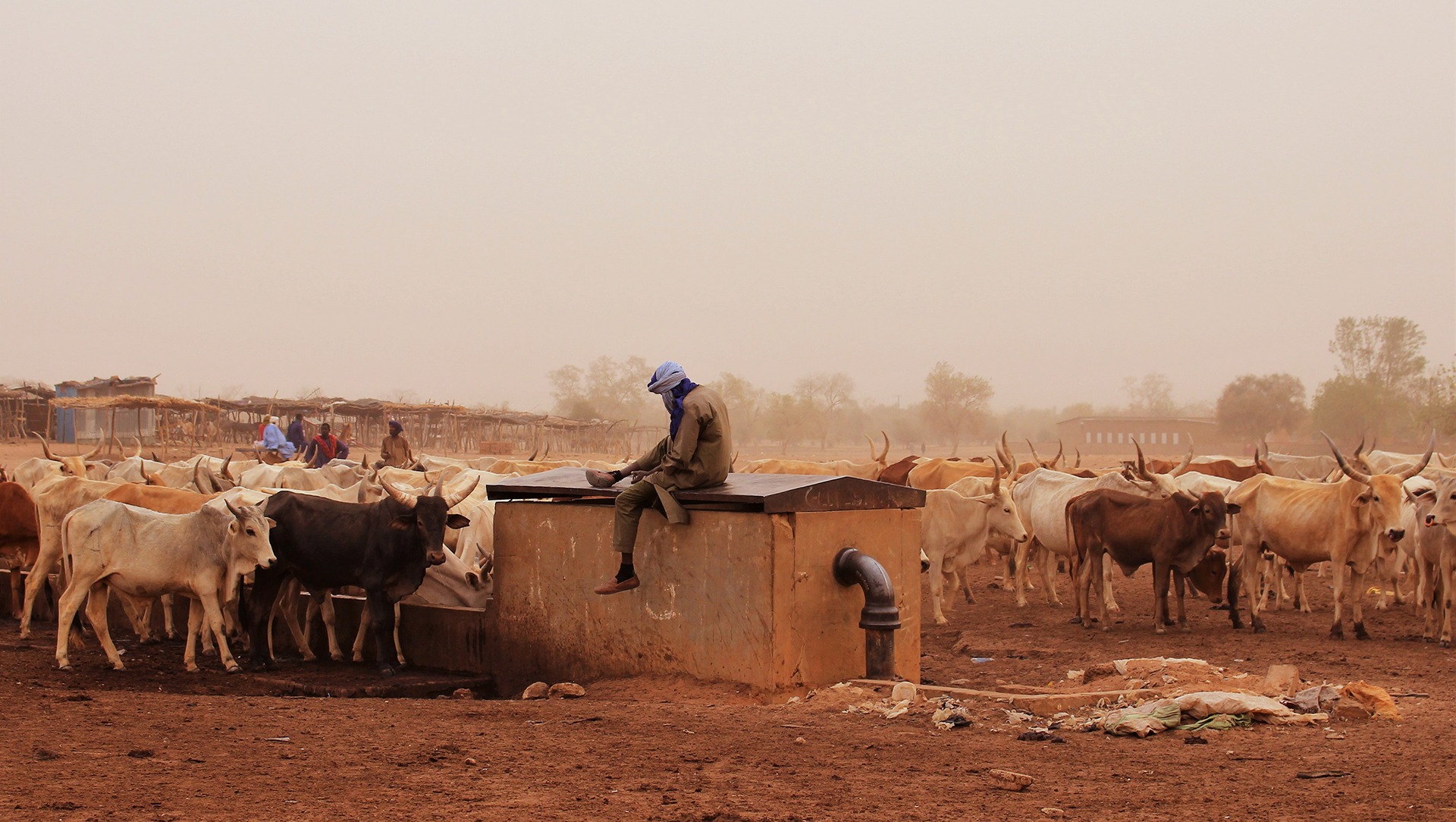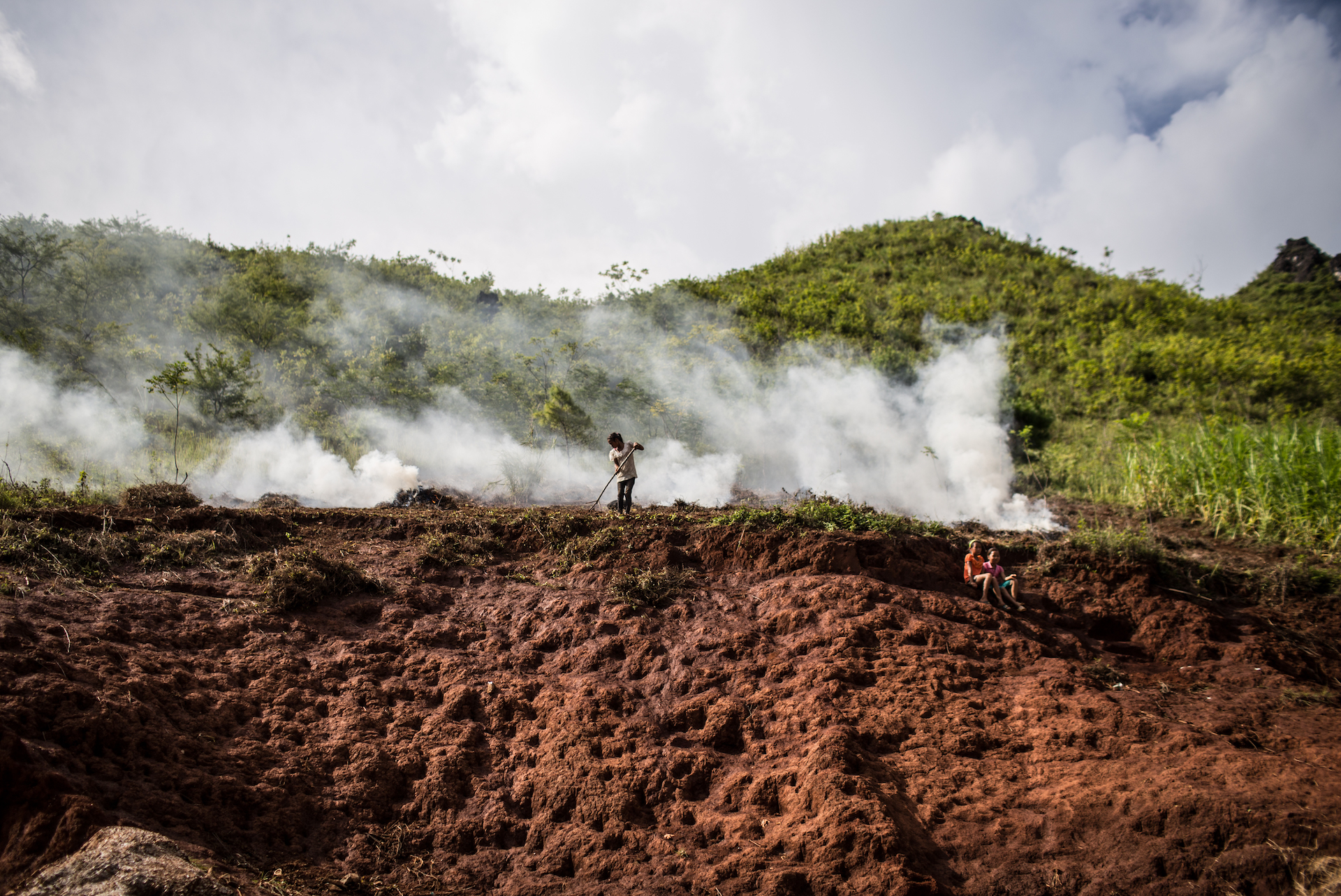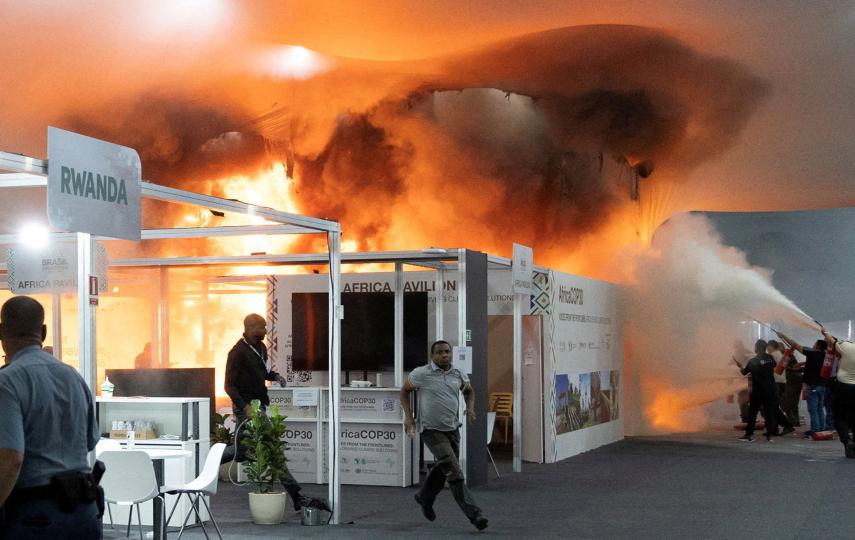How to tackle the impacts of climate change is front and centre as world leaders, environmental activists, and concerned citizens young and not-so-young gather in New York, with the UN Climate Action Summit kicking off a week of debates and high-level meetings at the General Assembly on Monday.
There’s a lot to discuss: A new study estimates that the number of people caught in humanitarian crises fuelled by climate change will nearly double if countries fail to limit rising global temperatures – inaction that could also cost billions in humanitarian responses.
The report, from the International Federation of Red Cross and Red Crescent Societies, estimates that some 200 million people will need humanitarian aid each year by 2050 due to climate-linked disasters. And the cost of responding to these emergencies could reach $20 billion every year, the report said.
Monday’s climate summit is aimed at solidifying plans on how countries will meet commitments to shrink greenhouse gas emissions over the next decade and beyond.
But as our recent reporting indicates, the humanitarian consequences of a warming world are already evident, often in countries and communities with the fewest resources to adapt. Super-charged storms, longer-lasting floods, more frequent drought, and searing heatwaves are already intensifying food insecurity, resource-related conflict, and displacement, climate experts say.
So as 16-year-old climate activist Greta Thunberg leads a brigade of young people from 150 countries in a “climate strike” on 20 September, spend some time with our latest coverage on how climate change is already having a humanitarian impact around the world.

‘Nowhere to go’ on the front lines of climate change
A family forced to flee their land for a city slum; a fisherman trying to farm because the seas are no longer productive; a drought-stricken herder who abandoned his livelihood only to see his new one threatened. Meet some of the communities grappling with today’s climate threats.

How dire climate displacement warnings are becoming a reality in Bangladesh
The World Bank warns there could be 13 million internal climate migrants by 2050 in Bangladesh alone. How do such grave predictions materialise? We explore the implications of research pinning one specific disaster to a changing climate.

Climate change is plunging Senegal’s herders into poverty
Global warming is more than a buzzword for millions of people facing food shortages in the Sahel.

Somalia’s climate change refugees
Forced off their land by drought, rural families face a precarious existence after migrating to Mogadishu. What can be done to help them stay on their land?

In Vietnam, early-season floods warn of risks to come
While countries debate a path forward, volatile weather – and inadequate preparations – bring new threats to remote communities.

Opinion | What to do about climate change? Ask women – they have the most to lose
Climate change affects women in profoundly different ways than men: exploring power imbalances, inequality, and the gender divide at the root of political climate change discussions.

A local approach to defusing conflict in drought-hit northern Kenya
Building peace in an age of climate change: a local aid worker fights for peace as pastoralist communities clash over dwindling resources.
(TOP PHOTO: Men transport the remnants of their homes by boat in northern Bangladesh’s Kurigram district. The country’s river areas are prone to flooding, but aid groups say the impacts of this year’s monsoon rains have been particularly heavy.)




